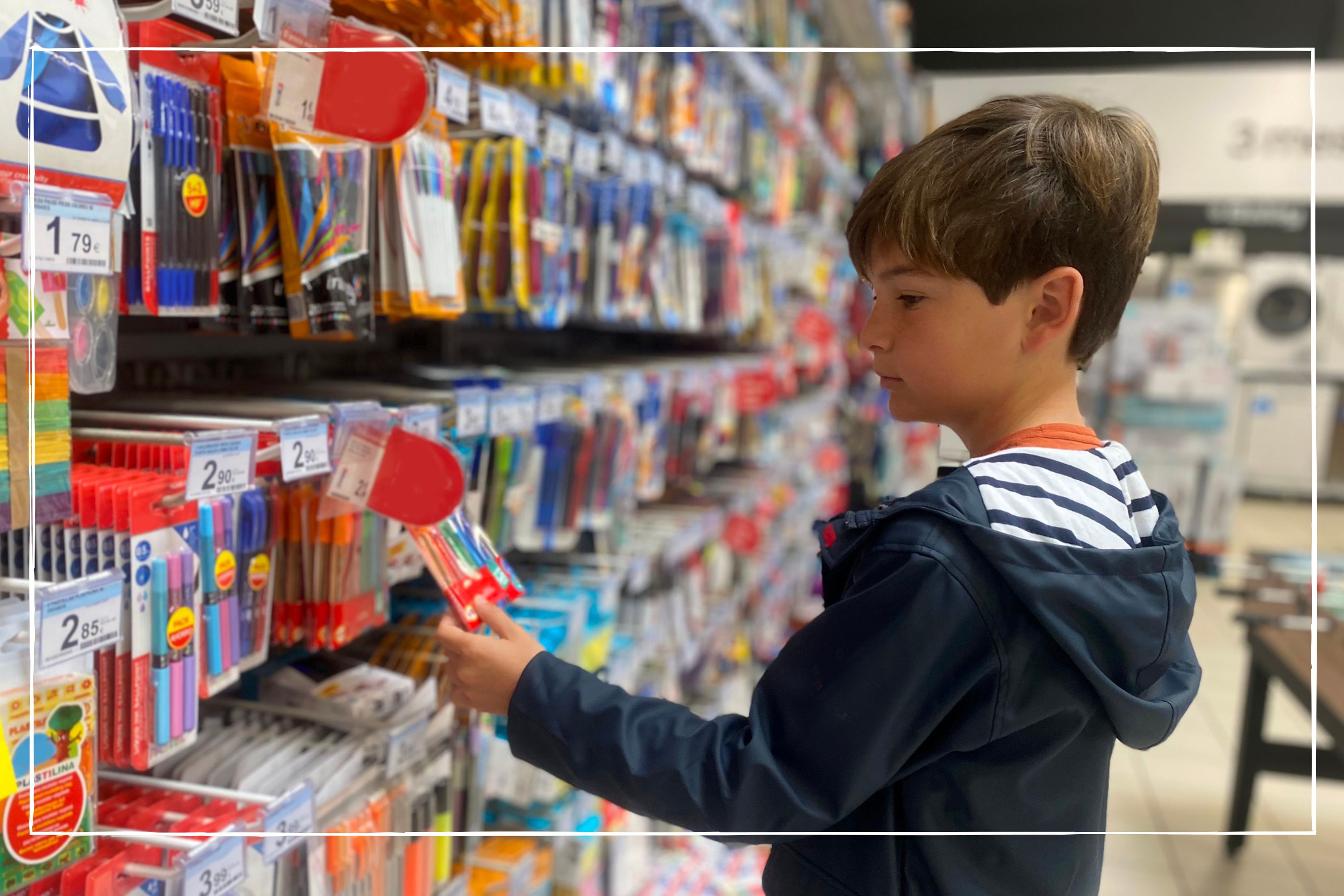Best apps for pocket money and how they can help teach kids about managing money
We explore the best apps for pocket money to help you find the right option for you and your children


Using the best apps for pocket money can be key to helping children develop good money habits. Like choosing the best bank account for kids, as well as helping them learn about money, pocket money apps can also encourage children to understand the importance of learning how to make money too.
Establishing good financial habits early on in life can help set your child up for success in the future, whether that’s helping them to budget to buy their first home, or preventing them from racking up debt. Try asking your child the money questions we put to some youngsters to get a sense of how much your child already understands about money.
Financial expert, Michael Throckmorton from Merchant Cash Advance, told us: “It’s now possible to teach children as young as four about the value of money by downloading a budgeting app. As physical cash is used less, apps can be a much more modern and relevant way of showing children how to look after their money in an approachable and easy to digest manner.”
We've also weighed up the pros and cons of pocket money so you can make the right choice for your family. If you think you might benefit from using an app yourself, there are plenty of effective budgeting apps available.
Best apps for pocket money available right now
Below, we’ve outlined some of the best apps for pocket money, considering factors such as cost, parental controls, savings and budgeting features.
GoHenry
GoHenry is a prepaid debit card and app designed for kids aged between 6 and 18. The app is tailored to your child’s age.
Cost: £2.99 per month.
GoodtoKnow Newsletter
Parenting advice, hot topics, best buys and family finance tips delivered straight to your inbox.
- Parents have a companion app to help them track their kids’ spending habits and set spending controls.
- Option to set savings goals within the app and track progress.
- Money Missions feature to teach your kids about managing their money via quizzes and videos.
- Set tasks for your kids and they get paid when the tasks are complete.
NatWest Rooster Money
NatWest Rooster Money is a parent-managed pocket money app and card for kids between the ages of 3 and 17. There are different accounts for different age groups and the monthly cost varies accordingly.
Cost: core features are free then up to £1.99 per month.
- Parents can set allowances and track kids’ spending.
- Option to set savings goals, as well as an interest rate on kids’ savings pots.
- Set chores for your kids to do to unlock their allowance.
- Set up regular payments to develop budgeting skills.
HyperJar Kids
HyperJar Kids is a prepaid card and budgeting app designed for kids aged 6 and up. It enables your child to manage their money in digital jars, with each jar having a different purpose, such as outings or new clothes.
Cost: Free
- All kids’ jars are shared with a parent so you can track where money is spent.
- Parents can set spending limits within jars and block spending from the account.
Revolut <18
Revolut <18 is designed for those aged between 6 and 17. It is a prepaid card and app and is linked to an adult Revolut account, so parents must already be a Revolut account holder.
Cost: There are four different pricing plans to choose from up to £12.99 per month, including a free option.
- Kids can complete tasks and challenges to get paid.
- Set savings goals and track progress via the app.
- Parents can set spending limits and control where the card can be used.
Starling Kite
Starling Kite is an app and prepaid debit card that lets you load pocket money, track spending and encourage saving. It is designed for kids aged 6 to 16. There’s a separate account for 16 and 17 year olds.
Cost: £2 per month per card.
- Parents can track spending and set spending limits, as well as where the card can be used.
- No fees for card spending overseas.
How do pocket money apps work?
Pocket money apps are simply money management tools that can help kids learn how to save and spend money wisely. Parents can transfer money to their children electronically, and children can then spend using their debit card.
Salman Haqqi, personal finance expert at money.co.uk, says: “Intuitive layouts, plus robust security features allow parents to safely manage their children’s pocket money online. While you can set spending limits, a huge benefit for parents is that you can also track your child’s spending within the pocket money apps, often receiving real-time notifications.”
Are pocket money apps safe?
Pocket money apps are generally safe to use, but most of them are classed as electronic money or ‘e-money’ accounts and do not offer protection under the Financial Services Compensation Scheme (FSCS). The exception is Starling Bank which has a UK banking licence and offers FSCS protection of up to £85,000 per person.
Mat Megens, founder and CEO of HyperJar, told us: “Pocket money apps typically work with financial institutions regulated by the Financial Conduct Authority (FCA), if the institution is based in the UK. The money in pocket money accounts is usually kept in separate, ring-fenced accounts with major high street banks.”
This means that should the provider go bust, you should still get your money back.
How can pocket money apps help to teach kids about money?
Pocket money apps can be a great way of giving your children financial independence, while maintaining an element of control over their spending.
HyperJar’s Mat Megens says: “It’s important kids get used to the digital world from a young age, learning to manage their money virtually as well as with physical coins and notes. Look for pocket money apps that make budgeting intuitive and fun – most kids learn visually and would rather develop great habits without noticing.
“Another important feature of these apps is that they should make budgeting and money management a family thing – talk to your kids about how they are going to spend and save their pocket money.”
You can also encourage your child to save by embarking on a variation of the 1p savings challenge to help them realise the benefits of a regular savings habit.
How much pocket money should I give?
The amount of pocket money you give to your children is ultimately up to you. But it’s worth considering factors such as the age of your child, how much you can afford as a family and what you expect your child to use the funds for.
Louise Hill, co-founder and COO of GoHenry, says: “It doesn't matter how much you give - it can be as little as a few pence - but the act of regular payments opens up the topic of money, and gets children thinking about the key pillars of money management: spending, saving, earning, and giving.”
The table below shows the average amount of weekly pocket money by age, as outlined by data from GoHenry’s latest Youth Economy Report.
| Age | Weekly average |
|---|---|
| 7 | £3.52 |
| 8 | £3.75 |
| 9 | £4.12 |
| 10 | £4.58 |
| 11 | £5.34 |
| 12 | £6.49 |
| 13 | £8.09 |
| 14 | £9.70 |
| 15 | £11.34 |
| 16 | £13.32 |
| 17 | £14.52 |
| 18 | £14.79 |
The age you start giving your child pocket money is also up to you and what works best for your family.
Tommy Gallagher, founder of digital banking site Top Mobile Banks, told us: “Some parents believe that children as young as four can be trusted with little cash, while others wait until their child is older and more responsible. Ultimately, the best way to determine when your child is ready for pocket money is by talking to them and watching how they handle money in general.”

Mum of two, Rachel is a freelance personal finance journalist who has been writing about everything from mortgages to car insurance for over a decade. Having previously worked at Shares Magazine, where she specialised in small-cap stocks, Rachel developed a passion for consumer finance and saving money when she moved to lovemoney.com. She later spent more than 8 years as an editor at price comparison site MoneySuperMarket, often acting as spokesperson. Rachel went freelance in 2020, just as the pandemic hit, and has since written for numerous websites and national newspapers, including The Mail on Sunday, The Observer, The Sun and Forbes. She is passionate about helping families become more confident with their finances, giving them the tools they need to take control of their money and make savings. In her spare time, Rachel is a keen traveller and baker.
-
 How to save money: 28 family-friendly money-saving tips for mums and dads
How to save money: 28 family-friendly money-saving tips for mums and dadsUnderstanding how to save money is key to limiting the impact of rising costs as much as possible
By Sarah Handley Published
-
 14 hidden benefits of your Amazon Prime membership
14 hidden benefits of your Amazon Prime membershipWe reveal the less-obvious perks of a Prime membership that will help you get the most value out of your subscription fee
By Rachel Wait Published
-
 14 surprising ways to spend your Tesco Clubcard vouchers - from restaurants and cinema passes to mini breaks and Disney+
14 surprising ways to spend your Tesco Clubcard vouchers - from restaurants and cinema passes to mini breaks and Disney+Tesco Clubcard vouchers can help you cut the cost of everything from groceries and travel to days out and cinema tickets
By Heidi Scrimgeour Published
-
 How to get Disney+ for free and save up to £79.90 a year
How to get Disney+ for free and save up to £79.90 a yearEven though the streaming giant ended its free trial offering, there are still multiple ways you can get Disney+ for free for up to 12 months
By Sarah Handley Published
-
 Parents of teens who have just taken their GCSEs urged to check child benefit status ahead of August deadline
Parents of teens who have just taken their GCSEs urged to check child benefit status ahead of August deadlineWith a child benefit deadline looming, some parents could see their payments reduced or stopped altogether - here's why
By Sarah Handley Published
-
 Parents should hold off buying this back to school staple 'as close to their first day as possible', says retailer
Parents should hold off buying this back to school staple 'as close to their first day as possible', says retailerWith parents turning their attention to kitting their kids out for the new school year, research suggestions which items should be left until the last minute
By Sarah Handley Published
-
 7 ways to save on back to school essentials, as its revealed parents will spend £2.3 billion in 2024
7 ways to save on back to school essentials, as its revealed parents will spend £2.3 billion in 2024We share ways you can get your child all the bits and bobs they need for the new school year, without breaking the bank
By Sarah Handley Published
-
 What day is child benefit paid around the bank holiday? Everything parents need to know
What day is child benefit paid around the bank holiday? Everything parents need to knowKnowing which day child benefit is paid when it comes to the bank holiday can help families plan their budgets accordingly
By Sarah Handley Published